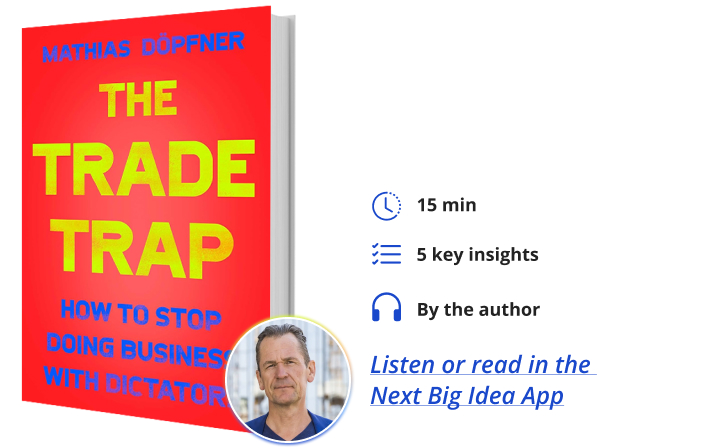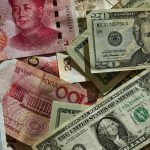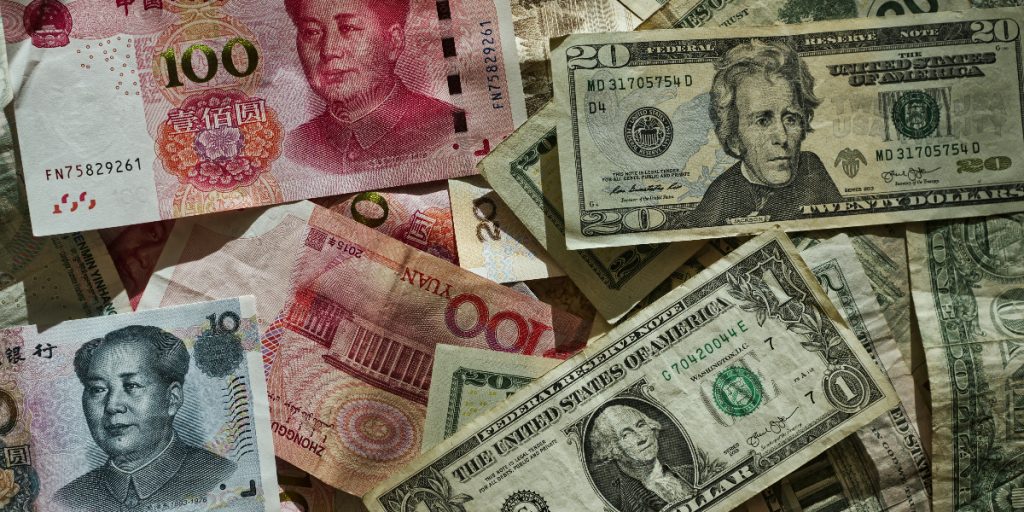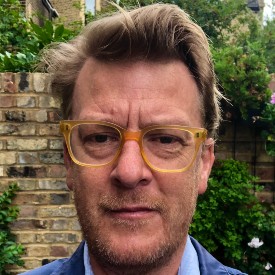Mathias Döpfner is the chairman and CEO of Axel Springer SE, owner of the U.S. media brands Politico, Insider, and Morning Brew, and the largest digital publisher in Europe. He is also a member of the board of directors of Netflix and Warner Music Group, serves on the steering committee of the Bilderberg Meeting, and holds an honorary office on the American Jewish Committee.
Below, Mathias shares five key insights from his new book, The Trade Trap: How to Stop Doing Business with Dictators. Listen to the audio version—read by Mathias himself—in the Next Big Idea App.

1. Our current world order is fragile.
War is back at the heart of Europe. The COVID-19 pandemic has set the entire globe in disarray. Weather extremes have reached a new peak of absurdity. Famine and hunger have reached new record levels in the past year.
Western liberalism has not prevailed or triumphed over other forms of government as political scientist Francis Fukuyama had predicted in the early 1990s. Instead, freedom and democracies are globally in retreat. And they have been for a while. For 17 consecutive years, the independent think tank Freedom House has recorded a decline in democracy, and now speaks of a “long freedom recession.” Only 20 percent of the world’s population live in countries that are classified as “free.” Forty percent live in states that are “not free.” This is the highest level since 1997.
“Change through trade,” the mantra that all Western politicians and businessmen abode by, has led to the exact opposite of what it intended. Instead of fostering democracy and openness through partnerships with Western economies, it made way for exploitation and unfair practices.
Politically and economically, the West is weaker than it has been in decades. Unless we make fundamental changes, this will be the beginning of the end of democracy. The West has been led into a trade trap. Or did it lead itself into it?
2. China’s accession to the WTO is possibly the biggest mistake the West has made in recent history.
December 11, 2001 is the date that marks the possibly biggest mistake the West has made in recent history: when China, after 15 years of negotiations, was accepted as a full member of the World Trade Organization. Since then, its share of global GDP has grown almost fivefold, while both those of the U.S. and the EU have lost significantly. At the same time, China’s CO2 emissions have grown by over 200 percent. This increase offsets the rest of the world’s decrease by far.
The fundamental error was to expose market economies to a state-led capitalism that makes its own rules, and abuses existing terms of trade and competition. Asymmetry instead of reciprocity, fueled by China’s ongoing status as a developing country—one that allows China to benefit from looser rules within the WTO. China has repeatedly violated WTO rules for years. The list is long: forced technology transfer; massive, often undisclosed subsidies; and distortion of competition by state-owned enterprises.
“China has repeatedly violated WTO rules for years.”
Let me give you one of many examples, that of photovoltaic or solar power systems. Until 2005, this industry did not exist in China. By 2022, China’s share in all manufacturing stages had topped 80 percent. How? Between 2010 and 2012 alone, Chinese solar production was supported by state subsidies of at least 42 billion USD. Its massive overproduction of solar panels triggered dramatic price drops in the sector, causing the majority of non-Chinese manufacturers to go out of business—or be bought up by their Chinese competitors.
“Business as usual” when dealing with China and other non-democratic economies is the most dangerous solution of all. Russia’s brutal war in Ukraine is another sad proof of that realization.
3. Vladimir Putin is a scientist.
Putin is like a mad scientist studying the West. Since he became president in 2000, he has been testing reactions, probing limits, trying out new methods, calculating probabilities, and forecasting resilience.
Europe has shown itself to be remarkably weak in the face of Putin’s experimentation: through its military passivity, its pacifist obsession with principles, and especially its decision to accelerate economic dependence on Russia. The Russian attack on Crimea in 2014 resulted in an incorporation of the peninsula, without resistance from the West. Germany even went on expanding its petro-fraternization with the planning of the Nord Stream 2 pipeline. This only showed Putin he could go further. And so he did.
I met Putin once, in 2005. Back then, Axel Springer was the publisher of Forbes Russia, a licensed edition of the American magazine. One year prior, its editor, Paul Klebnikov, was shot nine times leaving work late at night and later died in the hospital. Some thought the magazine’s critical reporting of the Russian government had led to the attack, particularly a story about tax evasion attempts by Russia’s elite.
The meeting was an intimidation ritual and ceremonial show of power. Oversized doors, a gigantic table, gold-leaf stucco ceilings and a chilling atmosphere. Its actual goal was to encourage us to keep doing business in Russia after our traumatic experience. We did so, but didn’t change a thing editorially. We remained as critical and independent as before—especially during the annexation of Crimea in 2014.
“The short-term benefits might be enticing but in the end, there is always more to lose.”
In the end, we had to sell. Russia passed a law limiting the foreign holdings of Russian media to 20 percent. Finding a pro-government buyer would allow us to keep making money but ensure editorial control is in safe hands. That was their expectation. So we sold to a regime critic for a symbolic price. The damage was huge and we knew: Never doing business in Russia would have been better.
This is sadly only one of a few experiences I had whilst dealing with autocrats. The short-term benefits might be enticing but in the end, there is always more to lose. That is why I am so alarmed when I look at the current state of the world. The West is weak, facing growingly powerful autocracies with megalomaniacal heads of state.
4. The U.S. and the EU are short of options.
Within this crisis—as in every crisis—lies a great opportunity for both Europe and the U.S. if they work together. While the U.S. has already started unilaterally decoupling from China, Europe is still mulling things over and taking a more diplomatic “de-risking” approach. This is not enough and is even counterproductive when both go solo.
The U.S. Inflation Reduction Act, for example, might be the largest law ever passed that secures national investments while addressing climate change. But so far it’s also a failed attempt to unite the West. In securing domestic expenditure, the IRA impacts not only U.S. investments in China but also those of democratic partner countries like France or Germany.
This is why I only see two possible paths:
Either autocrats like Vladimir Putin and Xi Jinping pursue their attempts to drive the democratic world apart. In that case, they start rallying their similarly minded allies—like one can see with the newly enlarged BRICS alliance—and expand their coordinated efforts and interests to enforce their non-democratic indoctrination. By becoming more confident aggressors, they push the democratic states into submission and isolation.
Or the said democratic states—starting with the U.S. and the EU—join forces to take a stance against these rising foes leading to a successful revival of a genuine transatlantic alliance. Offering freedom, security, dignity, and a sustainable way of life. Founded on diversity, competition, and achievement. And which, one day, might even attract those rejecting it today. Like a post-Putin Russia. Or even China.
5. We need a new world trade order.
We need a new world trade order, something I call The Freedom Trade. This new alliance of democracies would enable truly “free” trade. Free in that context does not only mean without cost, but also and mainly refers to upholding freedom. How? In abiding by three simple, clear, and nonnegotiable criteria: the adherence to the rule of law, human rights, and CO2 targets—invariably forming a community of shared democratic values.
Only countries meeting these requirements may become and remain members. They would be able to engage in truly free trade amongst each other, while nonmembers would be subject to high tariffs and restrictions. The alliance avoids dependencies on rapidly expanding autocratic economies and their political systems. It avoids deglobalization and promotes international cooperation.
“Simply waiting would be much worse than taking very late action.”
Today, democracies still have the upper hand. They generate almost 70 percent of the world’s GDP. Our task now is to safeguard that. The WTO has failed. There’s no point in clinging to it in either its current or a restructured form. Our best chance is to start afresh. The Freedom Trade alliance has a genuine chance of becoming the catalyst for a new world trade and political order.
So while it is objectively late in the day it is ultimately not too late. In any case, even if it were too late or almost too late, what alternatives do we have? Waiting for our codependency to turn into a unilateral dependency? For China to decouple from us? For a war over Taiwan? Simply waiting would be much worse than taking very late action. Because action proactively shapes the future, while waiting means simply enduring whatever happens next. The price of passivity is higher.
Let me finish by quoting NATO Secretary General Jens Stoltenberg. In May 2022, in light of the murderous war of Russia in Ukraine, he said: “Freedom is more important than free trade.”
This sentence captures the very essence of what is at stake—though freedom and free trade are not alternatives to one another. Both should be preserved. The key lies in redefining the concept of free trade. We need a new alliance enabling truly free trade among democracies. Because we cannot trade freedom for profits. If we do, we might lose both.
To listen to the audio version read by author Mathias Döpfner, download the Next Big Idea App today:































